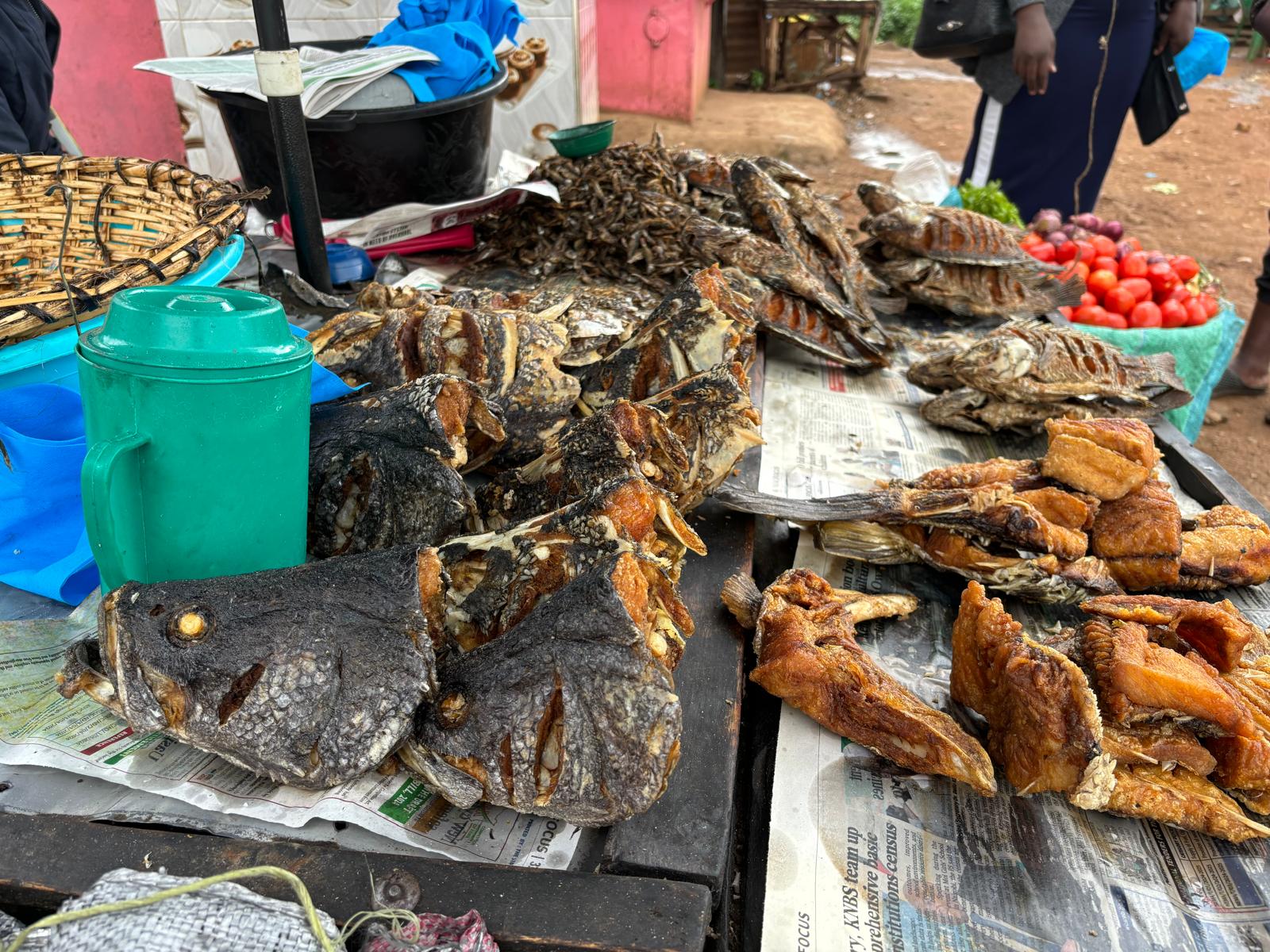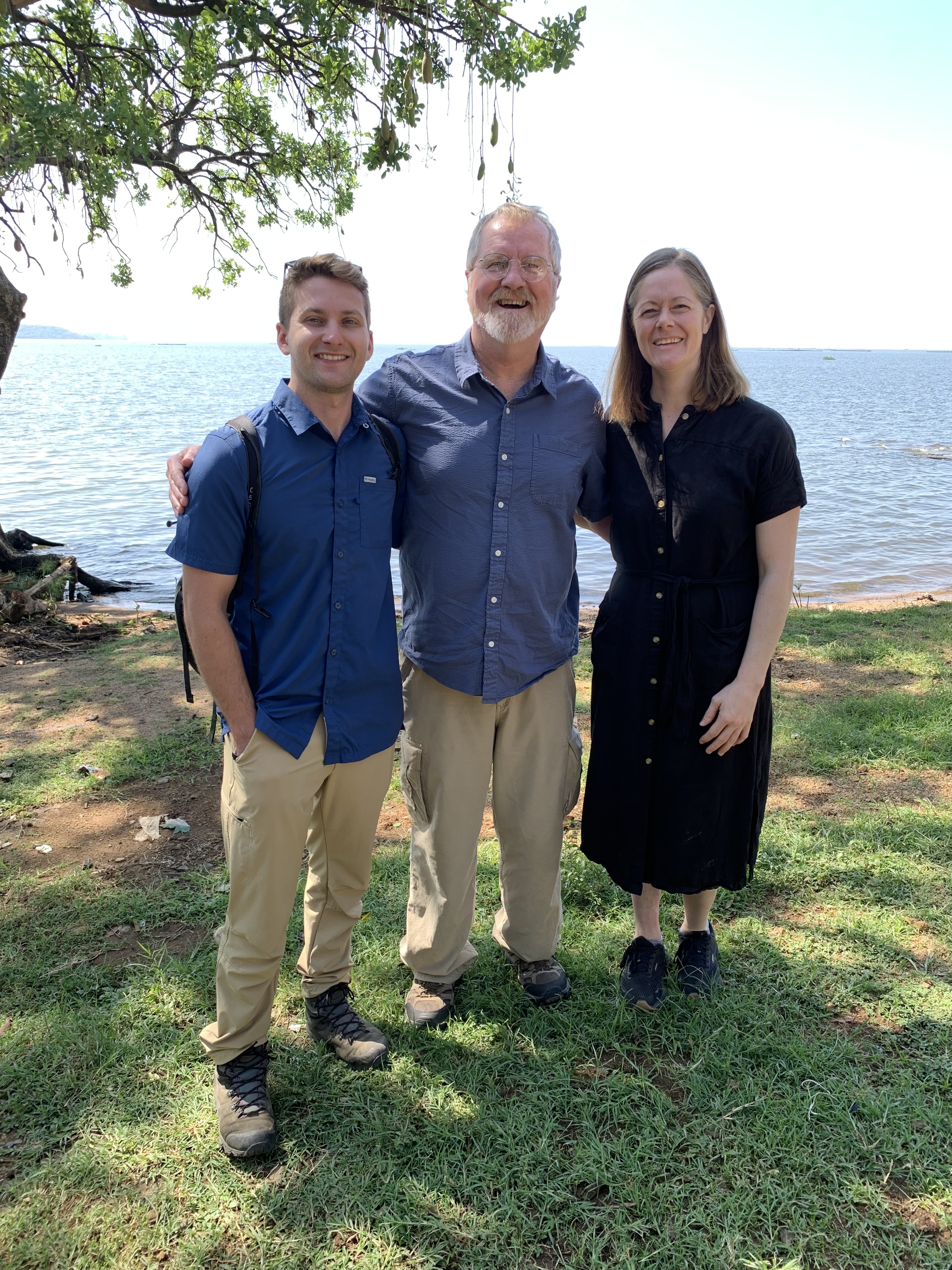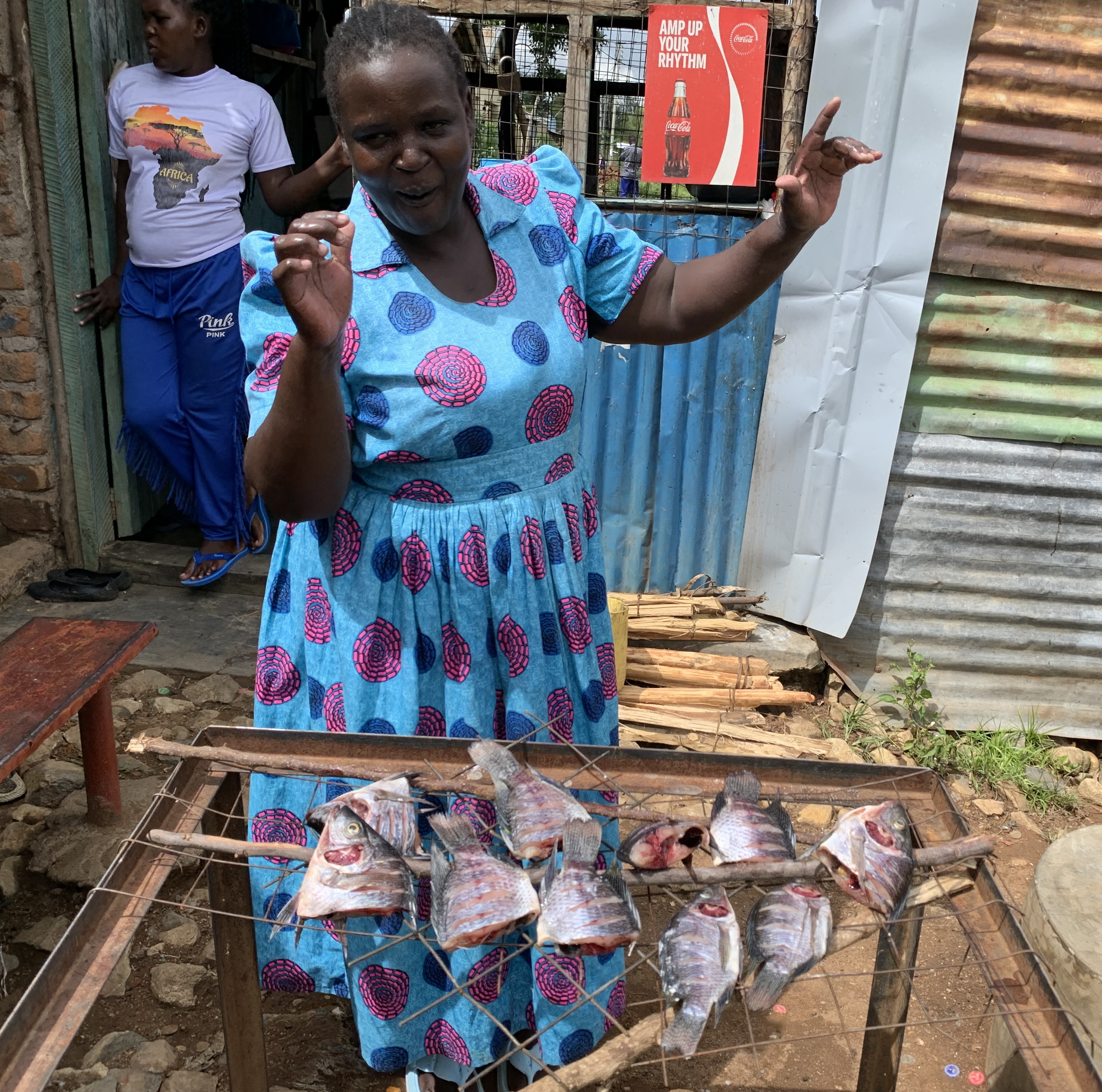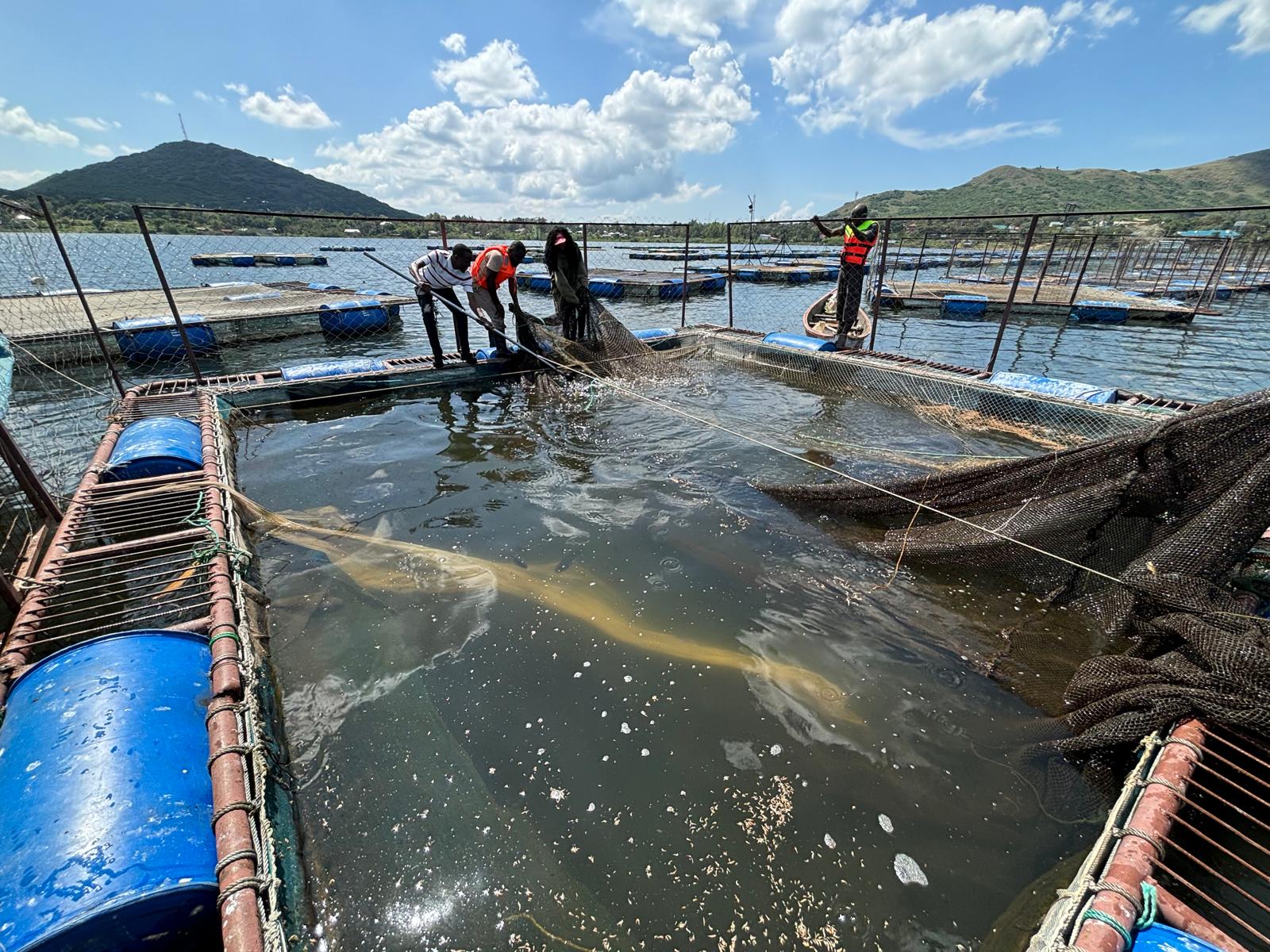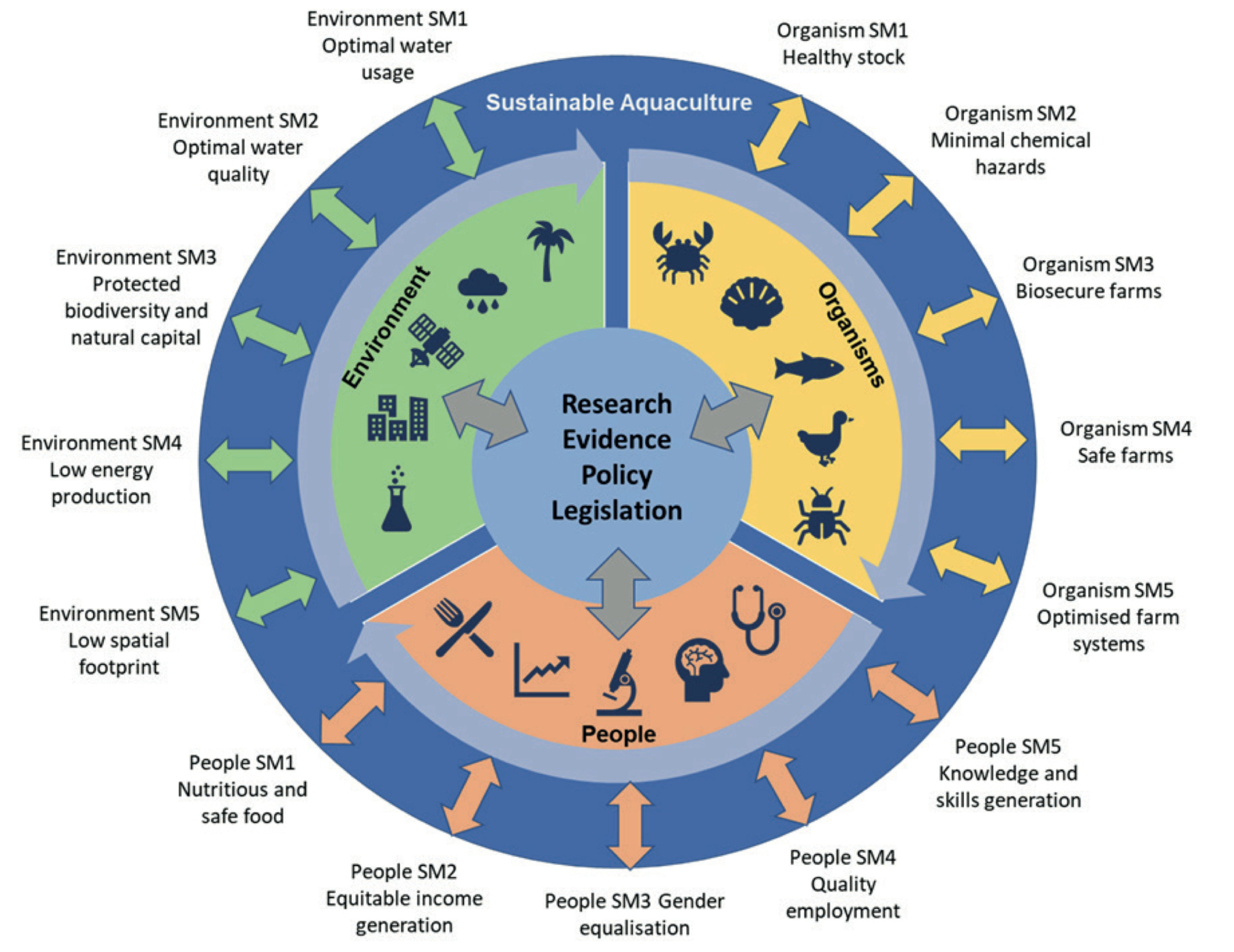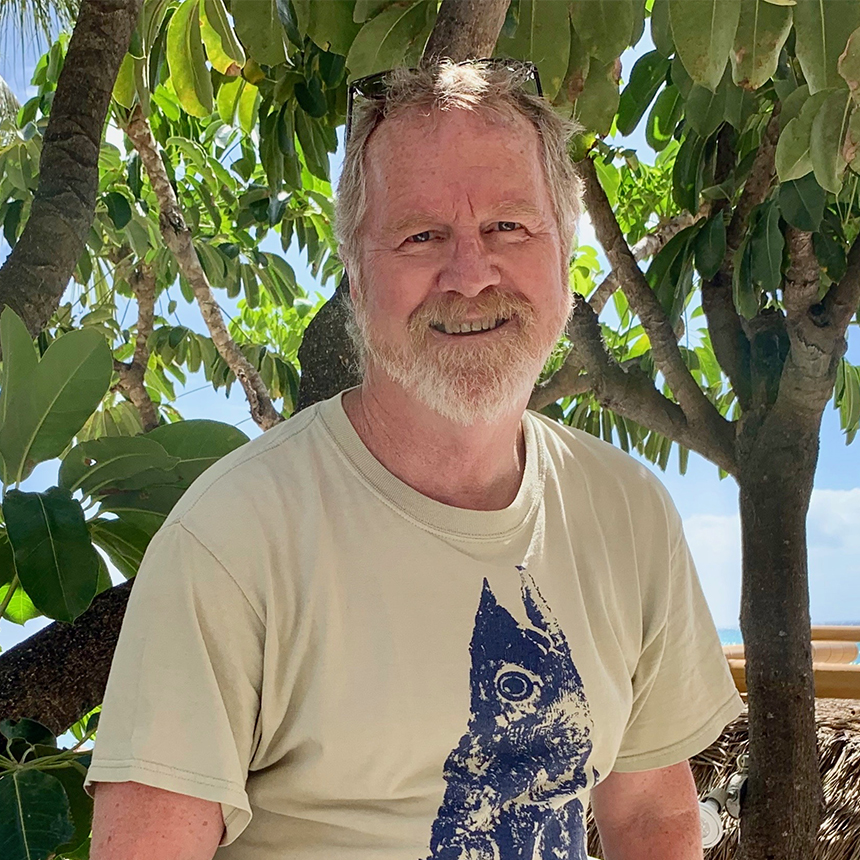One Health Approach to Aquaculture Draws on Compassion, Yields Economic and Social Benefits
Compassion is not just a feeling; it's a call to action. It motivates individuals to actively seek ways to help and make a difference in the lives of others. Caring for farmed animals involves understanding their needs and taking action to support and nurture them.
One Health recognizes that the health of humans, animals, and the environment is interconnected, and a compassionate approach is essential for addressing complex health challenges. Veterinarians provide competent medical care, working closely with fish farmers, bringing compassion and respect for animal welfare and human health.
This past year, I joined a new department within Cornell University’s College of Veterinary Medicine: The Department of Public and Ecosystem Health. I have met many public health professionals as this exciting new program has gotten off the ground. The addition of the ecosystem-focused faculty followed, and the connections made by our like-minded scientists grew exponentially.
Dr. Kathyrn Fiorella and I became One Health partners after our first meeting. Katie’s dedication to her students and her overseas collaborators was evident.
Katie is an environmental scientist and epidemiologist, and her research aims to understand the interactions among environmental change and livelihood, food, and nutrition security. Her work focuses on global fisheries and aquaculture, as well as the households that rely on the environment for food and income.
I have previously written about our project supporting Kenyan aquaculture and would like to discuss our One Health approach to assisting these fish farmers. Fish health and disease management underpin the sustainable development of aquaculture.
Communities along the Lake Victoria shoreline often use the lake for multiple purposes, including bathing, washing clothes, collecting human and livestock drinking water, and farming. The numerous ecological interactions between human and animal communities within a shared aquatic ecosystem present a clear opportunity for various outcomes.
The positive aspects clearly create more access to healthy food and consistent income. The downside involves some risks that many fish farmers face—disease outbreaks, escapes from farms, environmental factors like storms and poor water quality, and potential environmental impacts from their operations. They also face business risks like market fluctuations and competition.
Groups outside the sphere of Africa’s aquaculture development are also taking a more expansive view of these “food systems.”
Aquaculture Through a One Health Lens
The European Association of Fish Pathologists (EAFP) has a growing focus on One Health, also recognizing the interconnectedness of human, animal, and environmental health, particularly in the context of fish and shellfish.
Members of the EAFP published a perspective in 2020, emphasizing that aquaculture offers many positive aspects, including 1) poverty alleviation in some of the lowest-income regions, 2) production increases from technological advances and selected species, 3) comparatively lower environmental impact of some types of aquaculture, and 4) smaller spatial footprints compared to capture fisheries and land-based agriculture.
Scientists within the National Oceanographic and Atmospheric Administration (NOAA) have been testing this One Health system with aquaculture, examining the potential for the sector to provide an increasing proportion of global seafood supply. One of their goals is to maximize the benefits to producers and consumers while minimizing negative impacts on fish and shellfish grown on farms and the environment in which aquaculture takes place.
One Health approaches provide a lens through which we can assess and align our own competencies. In our case, that’s within aquatic animal health and food safety, with the desired outcome of fostering a sustainable food sector. Within a One Health framework, stakeholders can define, monitor, and avert potential negative impacts of enhanced aquaculture production.
Defining and Measuring Success
Increased aquaculture production through a One Health lens begins with defining a set of success metrics. A person’s health is deeply influenced by the interconnected relationships, structures, systems, and policies that shape their communities—dynamics that may benefit some populations while disadvantaging others. Within this context, human success metrics can include regional trade, meaningful employment, gender equity, increased rural production, improved diets, and infrastructure.
Perceived benefits to society—such as nutritious food, jobs, and profits—must be weighed against broader environmental cost–benefit considerations. For example, promoting farm biosecurity can help reduce chemical use, antimicrobial resistance (AMR), and zoonotic hazards from entering the environment.
Aquaculture can provide a range of public health, economic, and social benefits.
One Health principles can guide aquaculture toward efficient food production and sustainable environmental footprints while supporting local socio-economic needs—and yes, healthy fish are an essential part of the equation.
Farmed animals and plants interact with communities of viruses, bacteria, parasites, etc. within the aquaculture system. These microbes include known and unknown pathogens with the potential to cause disease in farmed species. Creating growing conditions conducive to good health and welfare is critical for aquaculture success.
Preventing pathogen spillover to the environment and nearby wildlife—and vice versa—must be built into farming systems. Best management practices and maintaining environmental conditions that reduce disease susceptibility in stocked fish are success metrics I’ve emphasized in my work for many years.
Conclusions
Aquaculture can provide a range of public health, economic, and social benefits. We hope our efforts in East Africa will make a difference in the lives of others. Training efforts that support small farmers and ensure access to fresh fish can contribute to long-term solutions to today’s challenges.
Sharing information globally to help feed people can be done through various channels. This involves raising awareness about hunger, sharing stories of impact, promoting food security initiatives, and encouraging support from organizations and countries that have the compassion to help.
Dr. Rod Getchell works at the Cornell University College of Veterinary Medicine in the Aquatic Animal Health Program, which is now a part of the Department of Public and Ecosystem Health. Rod has a broad background in fish health with specific training and expertise in conducting therapeutic trials with a variety of fish species.
Photos provided by Dr. Rod Getchell. Text adapted from and images originally published in Fish Farming News: Issue 3, 2025.

